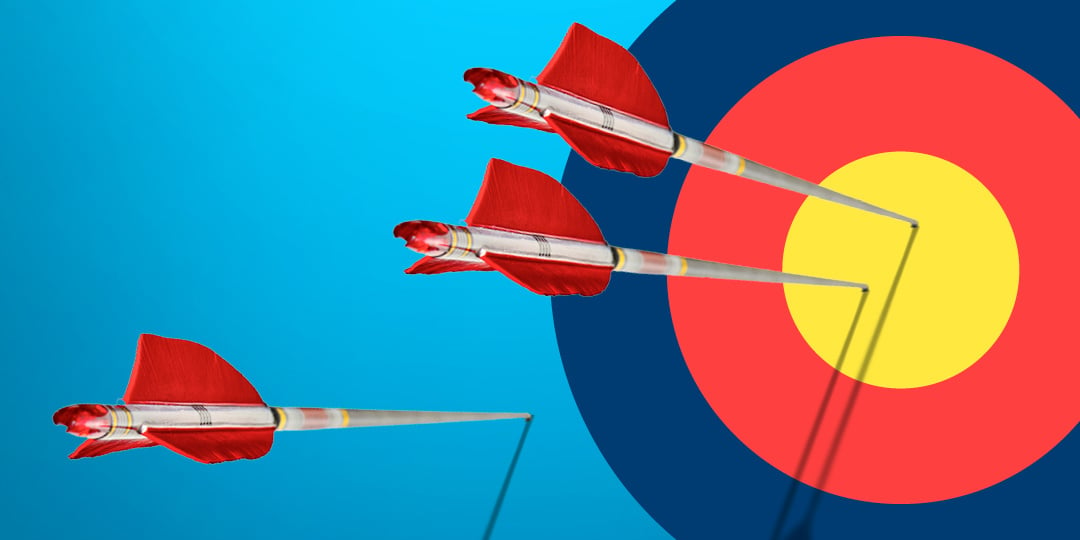How Multi-Zone Sourcing Can Save Your Supply Chain – And Your Sanity
Let’s face it, the past few years have been a crash course in supply chain fragility. If you’re a CEO or senior manager in manufacturing, you've...
All tasks in Shop Floor Management -
digitally supported with the functions of ValueStreamer®.
ValueStreamer® as a leadership tool supports the continuous improvement of processes and the optimization of collaboration.
Optimize processes in all areas of your business with digital Shop Floor Management. Learn more about the use cases.
3 min read
 Dr. Andreas Romberg
:
Jun 12, 2024 3:30:00 PM
Dr. Andreas Romberg
:
Jun 12, 2024 3:30:00 PM

We've been hearing more and more lately: Lean is over! We have been in the age of beyond lean for a long time!
The answer to the question of whether lean management has become obsolete or is still up-to-date is complex and depends on various factors, including the type of industry, the specific business models and the dynamics of the organizations. Basically, there are different opinions on this topic. In the following, we look at various aspects.
From experience, it can be argued that the basic principles of lean management, such as increasing efficiency, reducing waste and continuously striving for improvement, are still highly relevant. These principles and guidelines can serve as a solid foundation for any organization, regardless of the industry or technology environment.
There are always critical voices arguing that traditional lean management may not be sufficiently flexible and adaptable to keep pace with the challenges of a fast-paced, digital world. In dynamic environments, agile approaches or hybrid management methods could be seen as more effective.
The experience gained from setting up and managing complex and flexible collaboration systems allows us to see this somewhat differently. Lean management, understood as a mindset and value creation system and not just as a “wild collection of different methods and tools”, is a stable basis and foundation for further development in the direction of new management systems. In my opinion, agility in the sense of self-controlling work systems without lean management as a basis is inconceivable. The difference between Doing Agile (pure application of methods) and Being Agile (as a mindset and attitude) also applies here.
The same applies to Lean: Beeing Lean (mindset/attitude) is different from Doing Lean (pure application of methods)!
Those companies that are already beyond Lean almost always come from the world of pure methods and are already waiting for the next wave of methods instead of continuously developing their mindset and thus developing sustainably.
There used to be a saying in the context of software implementation projects: “Shit in leads to shit out”. In other words, if we digitize bad processes and work systems, the processes are still bad, just perhaps faster.
Experience has shown that lean management, understood as a mindset and value creation system and not just as a “wild collection of different methods and tools”, is a stable basis and foundation for the digitalization of our work systems.
What, for example, is the contribution of digital Shop Floor Management as a leadership framework from the lean management approach? It closes the gap between the data cascade and the management cascade and leads to efficiencies, increased throughput, faster and more reliable decisions and well-founded continuous improvement from permanent deviation management. In short: operational excellence.
This means that digitalization is not an end in itself.

Figure 1: Digital Shop Floor Management closes the gap between the data and management cascade;
Source: Staufen.ValueStreamer GmbH
Some companies are integrating lean principles into their digital transformation strategies. The combination of lean and digitalization can create a powerful synergy by combining lean processes with digital technologies and innovative approaches.
It is important to emphasize that successful management approaches often depend on a company's ability to adapt to specific circumstances. In other words, it essentially depends on the attitude and behavior in the management structures. In other words, it depends on the mindset of the management team. Rather than being fixated on a single management method, companies can benefit from a flexible and adaptable approach based on the mindset.
Overall, it can be said that lean management is far from obsolete, but that it depends on how it is integrated into the context of current business requirements and digital transformation. Companies could benefit from a critical review of their management approaches and adapt them where necessary to meet the demands of today's business world. We will keep coming back to the old familiar principles of lean management philosophy here.
Efficiency and waste reduction will continue to be on our agenda in the future.
In a globalized and competitive economy, efficiency is a decisive success factor.
Customer orientation will become even more important than it is today.
Companies that focus on creating customer value are better positioned to succeed.
The need for agility and adaptability is constantly growing.
The principles of lean management promote an agile corporate culture.
Continuous improvement will remain a hot topic in the future.
By constantly reflecting on and adapting processes, companies can continuously improve their performance and better meet the challenges of the market.
Resource efficiency is an important topic, especially in the discussion about the shortage of skilled workers.
At a time when resource management plays a major role, lean management helps companies to use resources more efficiently and reduce costs.
While some companies may prefer alternative management approaches (mindset!), others find lean management a proven method and basis for increasing their competitiveness and performance.
Overall, lean management remains an important approach for companies.

Let’s face it, the past few years have been a crash course in supply chain fragility. If you’re a CEO or senior manager in manufacturing, you've...

What’s Going Wrong, and What You Can Do About It If you manage a mid-level manufacturing company, you know the pressure of meeting yearly goals. But...

When we think of Halloween, images of haunted houses, spooky masks and eerie fog may come to mind. But what if we told you that these elements are...

The 10 Main challenges The introduction of lean management can encounter a variety of challenges, both cultural and operational.